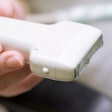
Education is key to fostering an inclusive imaging environment for the LGBTQIA+ community, according to findings published June 11 in Academic Radiology.
A team led by Stephen Sozio, DO, from Rutgers University in New Brunswick, NJ, found that a radiology-focused education module led to significant increases in knowledge about LGBTQIA+ healthcare issues.
"Utilizing the information presented in our work, this can serve as a framework to create an educational module to educate and empower healthcare providers, ultimately translating into enhanced patient outcomes," Sozio told AuntMinnie.com.
About one in five members of the LGBTQIA+ community report experiencing discrimination when accessing healthcare, according to a 2019 report. This may cause many to not attend medical appointments or recommended screening programs, leading to poorer health outcomes.
The researchers noted that there is little education in radiology on the unique healthcare needs of LGBTQIA+ individuals despite them undergoing routine imaging. For this study, Sozio's group created an educational module regarding LGBTQIA+ imaging, sharing its experience using the module on a cohort of radiology resident physicians.
Eleven residents attended a one-hour educational conference, learning about topics such as LGBTQIA+ healthcare disparities, clinical nuances that may affect imaging, and ways academic and private-practice centers can best approach their LGBTQIA+ patients. They then completed a 12-question, multiple-choice exam before and after the event.
Sozio and colleagues found that exam performances improved among residents of all years after attending the conference.
| Percentage of correct responses regarding LGBTQIA+ care, pre- and postconference exam | ||
| Residents by year | Correct responses, preconference exam | Correct responses, postconference exam |
| First-year | 29% | 75% |
| Second-year | 29% | 63% |
| Third-year | 17% | 71% |
| Fourth-year | 42% | 80% |
The team also highlighted that conducting educational sessions like this is feasible considering that computer resources are readily available, little investment needed, and a one-hour length easily integrates into a graduate school education curriculum.
"[The] electronic nature of the presentation allows attendees and presenters to attend the conference either in person or virtually, further minimizing barriers to attendance," the authors wrote.
Finally, Sozio and colleagues noted that offering educational sessions can help radiology departments foster a more inclusive environment for the LGBTQIA+ community by addressing healthcare inequities.
"Given the extraordinary responsibility of the radiologist, it is imperative for radiologists to carry fundamental knowledge of the nuances of caring for a patient who identifies as a member of the LGBTQIA+ community," Sozio told AuntMinnie.com. "In doing so, this allows the radiologist to promote positive outcomes for each patient."
Sozio added that the team is continuing to present and update this learning module, as well as working to expand its reach by presenting it at other radiology graduate medical education programs.
The full study can be found here.




















